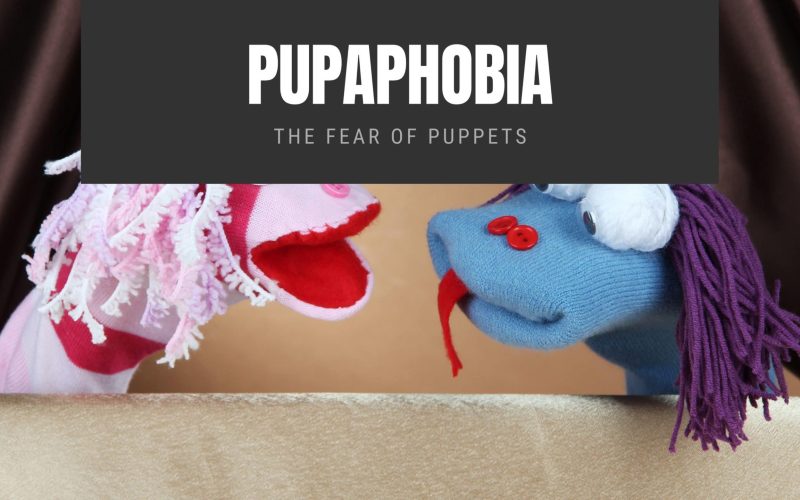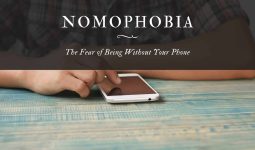Pupaphobia is an irrational fear of puppets. All phobias are basically feelings of anxiety or stress towards a particular object, making Pupaphobia no different from all phobias.
To someone who has Pupaphobia, puppets are a nightmare; just beholding them causes panic in some cases, while other people see them as ridiculous or silly objects.
The word Pupaphobia originates from the Latin word “Pupillo” (puppet) and the Greek word “Phobos” (fear). Pupaphobia is closely related to Automatonophobia and ventriloquism.
They fear dummies, statues, animatronic creatures, or anything that represents a being with feelings or perceptions.
In the early days, when puppetry was very popular—this was before TV, Radio, or the Internet—puppetry was one of the major forms of entertainment.
We still see puppetry shows in stand-up comedy, such as Jeff Dunham , Pinocchio, and others. Psychology teaches us that the human mind is capable of creating a real biological reaction in any given situation.
Since people living with Pupaphobia believe that puppets represent danger, they grow fear towards them. Then, they would continue to feel all the symptoms associated with it.
Honestly, this reaction is not faulty. The real problem is not the anxiety of fear but rather the thought or idea involved in creating this reaction.
Causes of Pupaphobia
Like many other phobias, there is no definite cause for Pupaphobia. Still, some might be worth listing here, and some are environmentally related or genetic.
Movies
One of the major causes of Pupaphobia has been said to be movies. Movies like Revenge (1996), the puppet master(1989), Dead of Night(1996), Magic (1978) and Chukky (2002). This movie portrays puppets that came to life to hunt the living.
These movies could be seen as one of the major causes of Pupaphobiain some individuals.
Books
One of Goosebump’s novels, “Night of the Living Dummy,” was a highly influential horror book that instilled fear in people who read the book. With the right genetics, it would be easy for someone to develop Pupaphobia from reading such a book.
Symptoms of Pupaphobia
A majority of those who have Pupaphobia realize the fact that their fear is irrational but still find themselves experiencing the fears regardless of their knowledge of it.
In most cases, someone who is suffering from Pupaphobia may also have Achluphobia (fear of darkness) or Samhainophobia (fear of Halloween).
The symptoms of Pupaphobia could be seen among other phobias, and they include:
- Inability to relax
- Panic attacks
- Being quick-tempered
- Concentration problems
- Palpitation
- Aches and pains
- Fatigues
- Dry and sticky mouth
- Sweating excessively
- Migraines and headaches
- Breathlessness
- Prickly sensation
- Feeling dizziness
Pupaphobia symptoms are automatic and sometimes uncontrollable. It can take over people’s thoughts and frequently lead them to take extreme measures to avoid puppets or objects likened to a being. This is known as “Safety” or “Avoidance” behavior.
Unfortunately, this usually reinforces the problem rather than solving it, which causes a paradoxical effect.
Usually, the fear of puppets results from a negative experience, which might be directly or indirectly linked to puppets or the object of fear in other phobias.
Over time, Pupaphobia patients either get normalized and accept their fears or become worse. Various factors could cause this; the beliefs in people could help them get past their fears.
At the same time, sophisticated avoidance behavior routines could make things worse.
Treatment of Pupaphobia
Many Pupaphobia patients find psychological therapy to be quite effective in solving their cases. Aside from that, there are various psychological treatments out here; these various treatments are known to cure not only Pupaphobia but countless other mental-related problems.
Cognitive Therapy (CBT)
Cognitive therapy (CBT) and Changing Limit Beliefs (CLB) are programs that see symptoms of Pupaphobia as a “non-helpful thinking lifestyle.”
They also see the pattern of thinking that directly affects or creates feelings of anxiety and stress when they face the object of their fears.
This type of therapy usually focuses on building sets of coping skills and mechanisms that help the individual focus on present rather than past experiences. It is mostly called incremental therapy.
The relationship between thinking (cognition) and feelings (behavior) is the focal point of this type of therapy.
Psycho Dynamic Therapy
Psycho Dynamic therapy, like Psycho-analysis, considers events and social influences that people who have Pupaphobia were exposed to in their early formative life to be a major cause of their problem.
Unlike Cognitive therapy, psychoanalysis takes a rather different approach from incremental therapy. The major goal of psychoanalysis is to help sufferers of Pupaphobia gain insight, explore, and develop some resolve.
These resolves help Pupaphobia patients determine the origin of their problems, which in turn helps them take a more logical approach to their phobia.
Exposure Therapy
Exposure Therapy is a common way of treating not only Pupaphobia but all phobias in general. This therapy treats all kinds of disorders; by exposing those who have this Pupaphobia to puppets, they gradually cope with the phobia.
Exposure Therapy is an efficient way to desensitize people who are suffering from Pupaphobia.
The exposure therapy procedure is quite adequate, as people who have Pupaphobia are gradually faced or exposed to puppets.
Before they are exposed to puppets, which brings them fear and dread, the specialist will prepare their minds for what is to come and ensure they can handle the process.
Though it’s a very successful method, the specialist treating the disorder is still encouraged to be highly skilled in their field before attempting this method, as there might be a level of exposure that the patient needs to surpass his fears.
Medications
Taking anti-anxiety pills has been known to help reduce the intensity of some forms of Pupaphobia; the same goes for some antidepressant medications.
Though the medicine alone might not yield a long-lasting positive effect, Doctors have advised that it’s best taken with some form of therapy.
Exercise for Pupaphobia
Exercise is known to be extremely beneficial for people who have various mental disorders, which include Pupaphobia; cardiovascular exercise is one of the most effective exercises that is known to relieve stress.
Aerobic exercises have been said to help people, and they are more effective at releasing some of the feel-good chemicals in the brain, namely endorphins.
Since stress had been seen as a major course of anxiety, the Doctor has advised that regular exercise would yield a good result for Pupaphobia.








